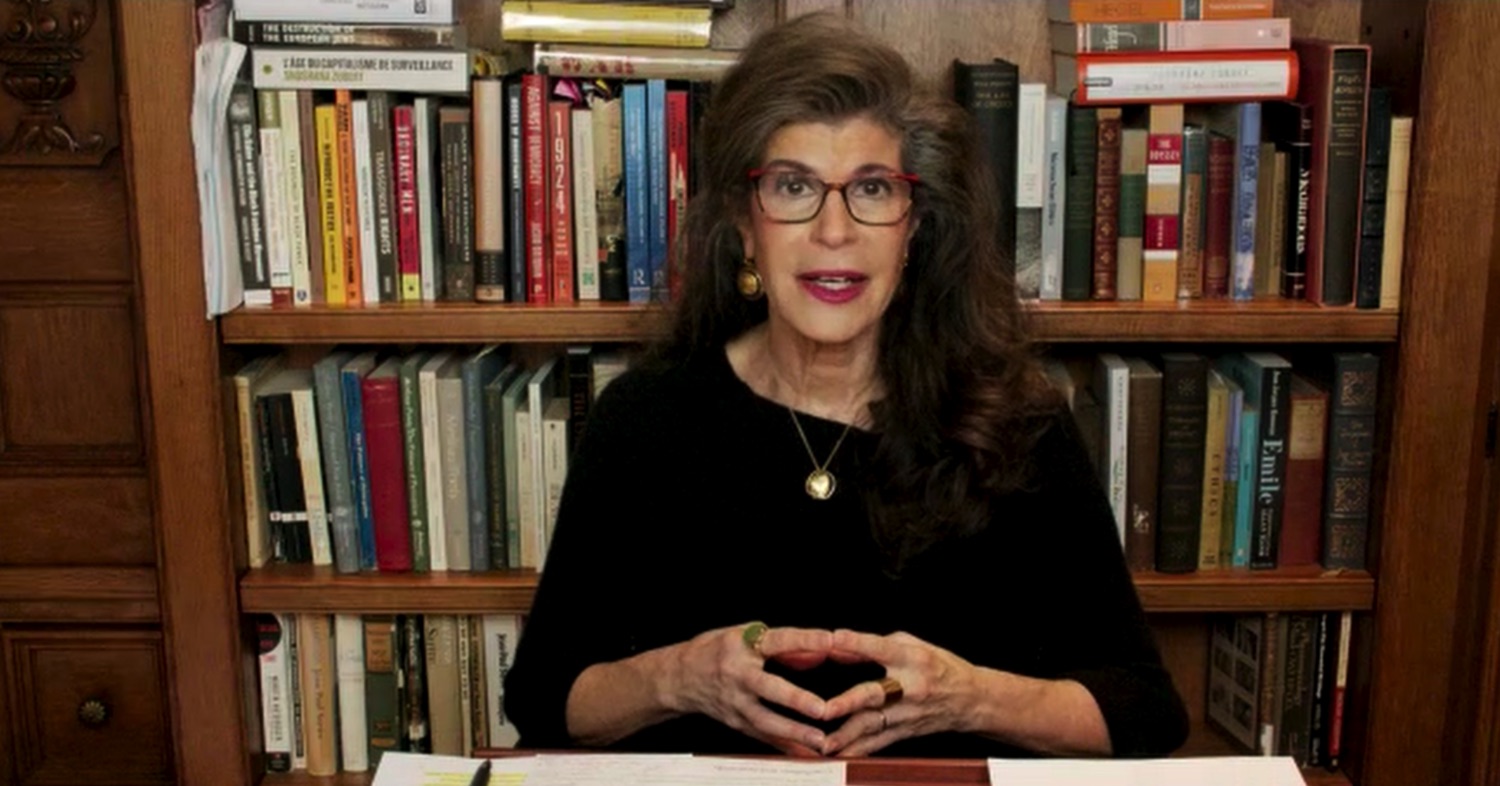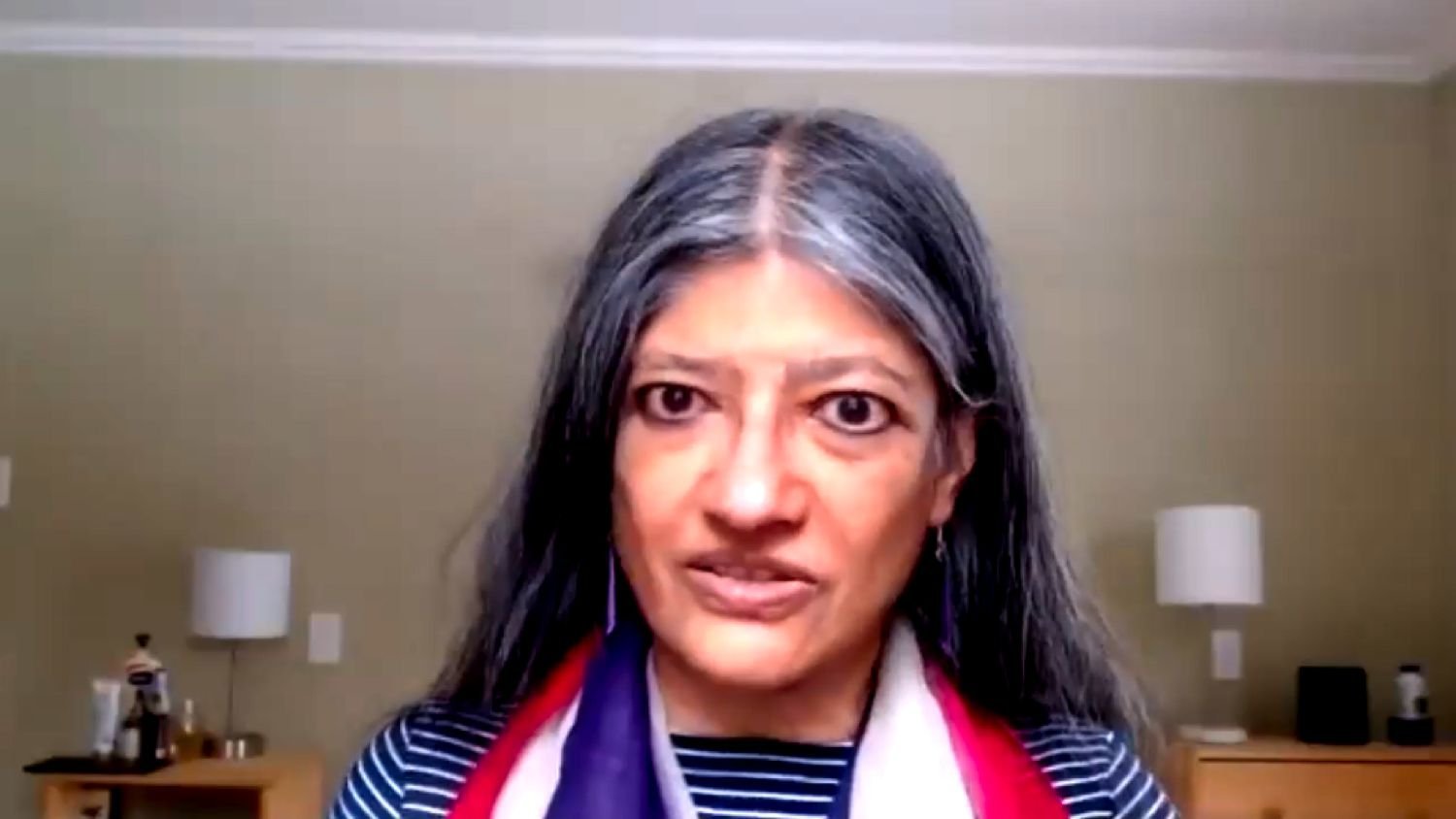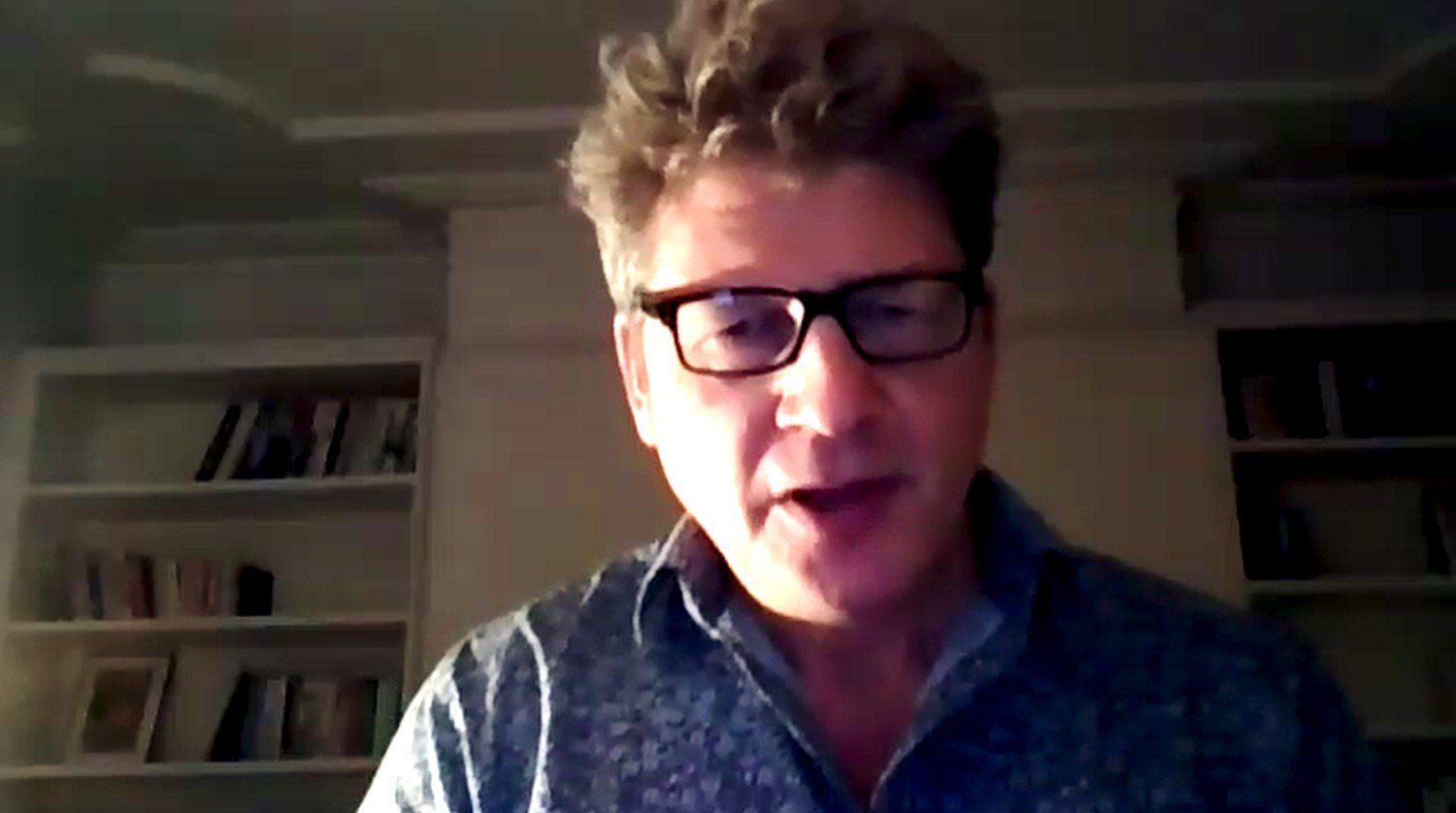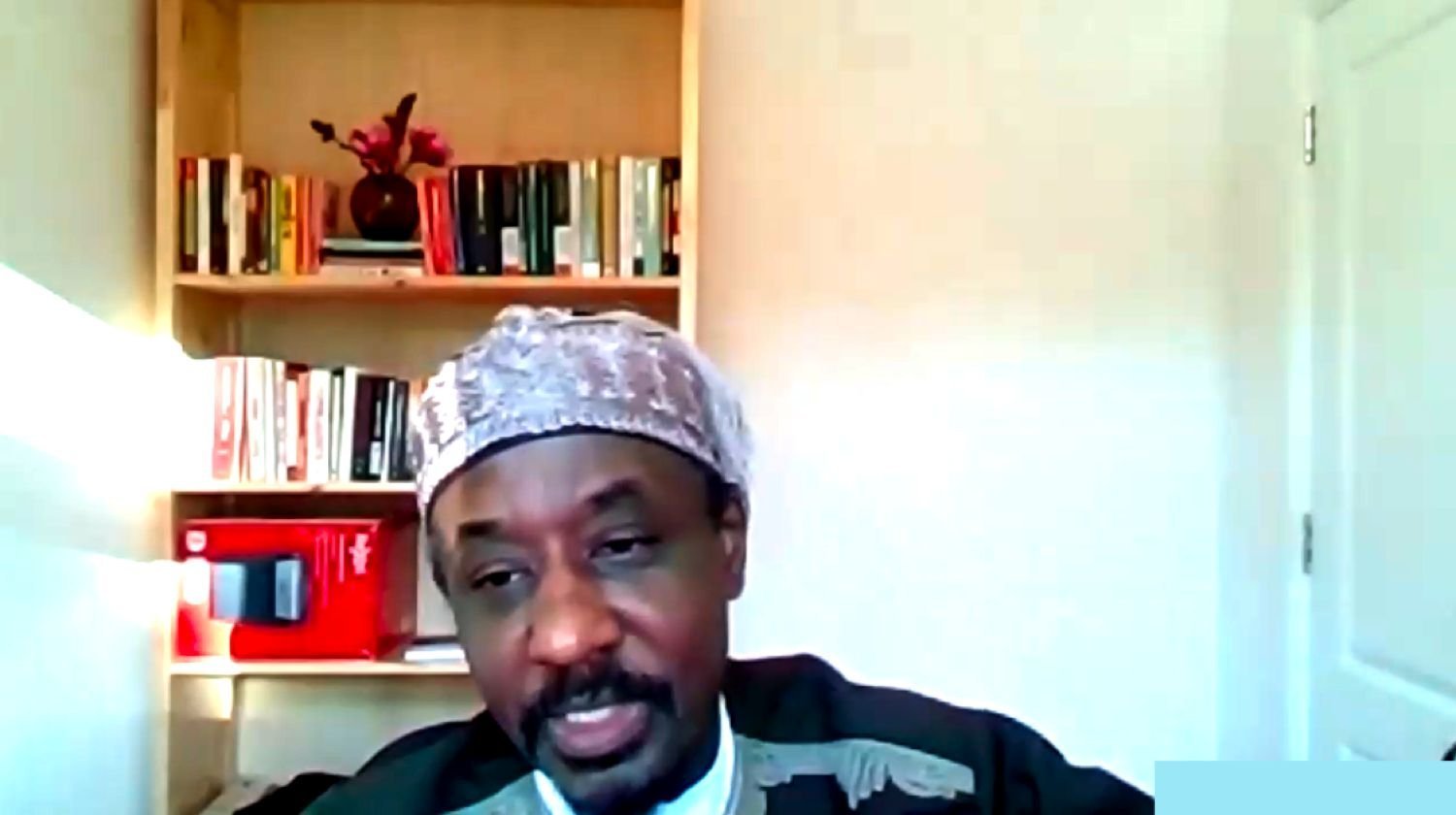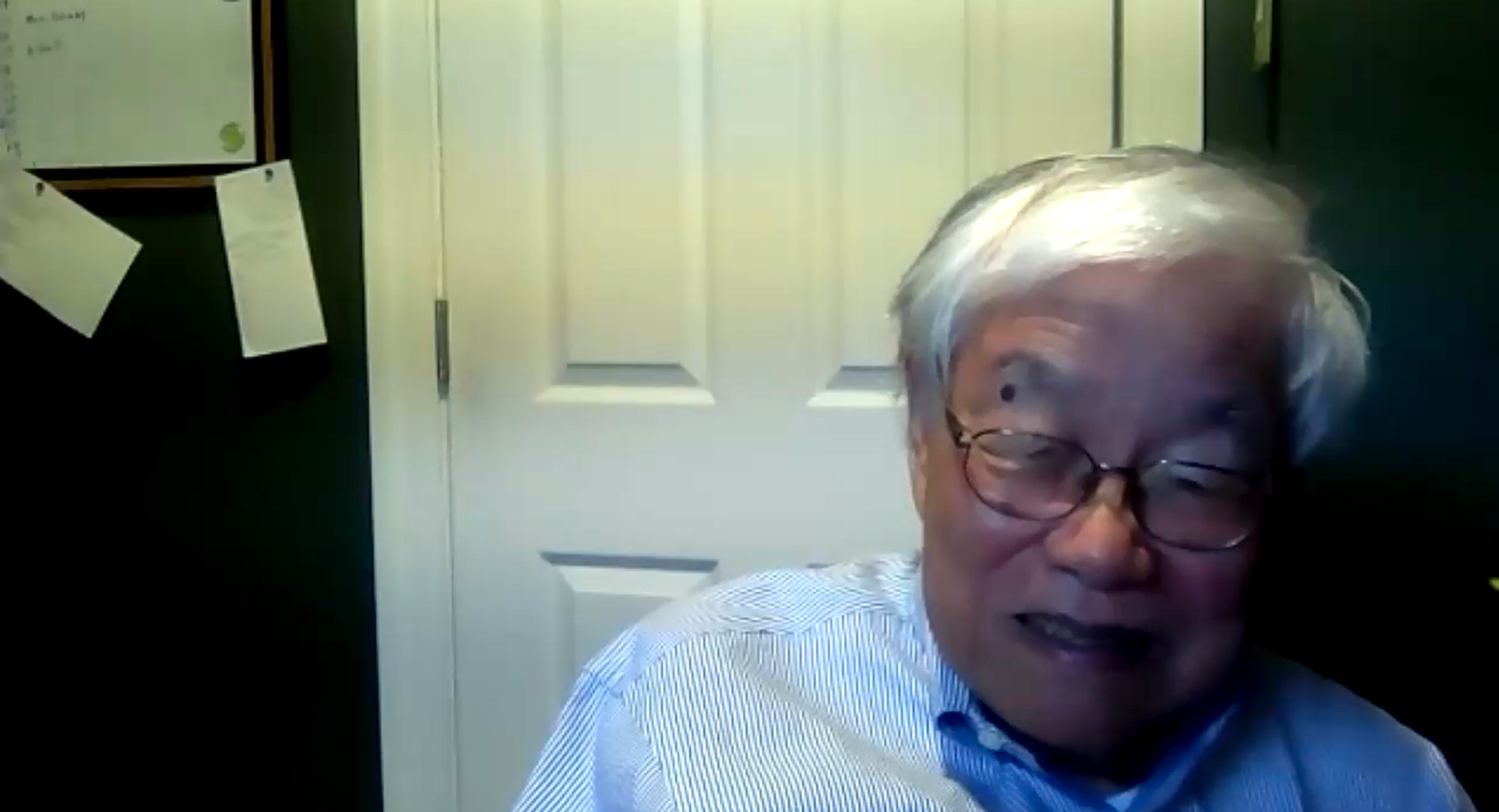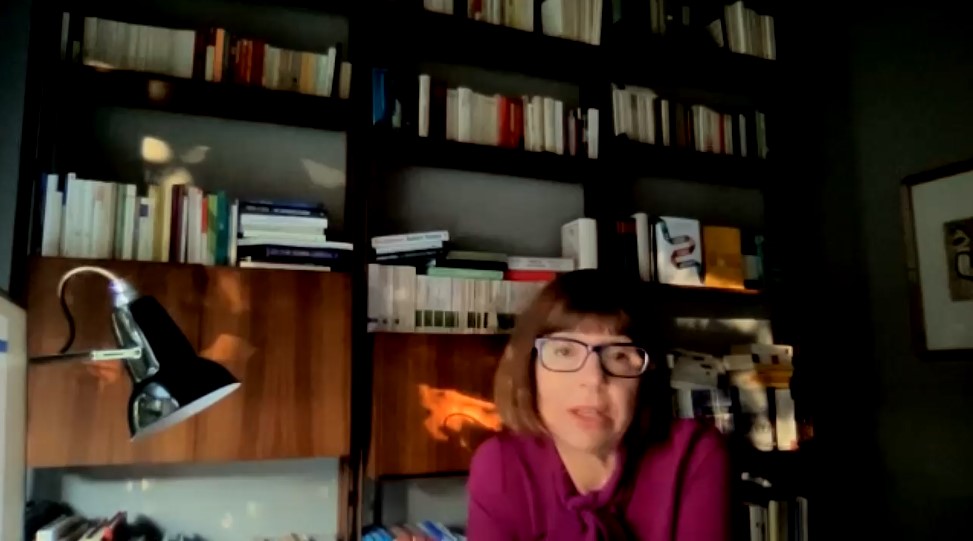Ian Hughes
Irish. PhD in atomic physics. Senior Research Fellow at University College Cork
1. Why does economics matter?
So I think there’s three reasons that I’d point to why, in my mind, economics matters. I think the first one is about material well-being. So economics is about material well-being. How do we improve our material standards of living? And so the first thing, as I said not only is economics important for material well-being in itself, but also what that enables. So what it enables for a society in terms of the rule of law, in terms of education, in terms of citizen participation and so forth.
So I think when you look at history since the beginning of the Industrial Revolution where economics in its current form really took off, you’ll see that the increases in material well-being that capitalism has enabled have been enormous and have underpinned enormous human progress. And if you measure that progress by those things of the rule of law and education and so forth, and it hasn’t been perfect, of course, and but material well-being and improvement of material well-being is the first thing I think I’d point to.
The second reason why economics matters is because it deals with issues of power and inequality, and those are central to how society is structured. Maybe we’ll come back to that again later. And the third thing I think economics matters is because it lays an overview, if you like, of how we view ourselves - what it is means to be human and what it means to live a good life. And so economics has a particular view on those questions and what it means to live a good life in terms of achieving material success and gaining a certain level of income and wealth and so forth.
And I think that’s gone to, in our current system, that value system which underpins the current model of economics, has really become the dominant value system within society, and that impacts on all of us. And I will argue maybe during some of the other questions that it’s now impacting on us in severely detrimental ways.
2. What are the differences between economic science (academic economics) and economic engineering (policymaking)?
For this one I would like to respond to the term economic science, because I’m a scientist by background.
My background is a PhD in atomic physics and quantum physics. And the idea of economics being a science I think is something that’s really interesting to reflect on, because I think even in my own journey through science and through life, the idea of scientism, that science is something that gives you an ultimate truth, that allows black and white thinking, that is focused very much on what can be measured and prioritises and valorises what can be measured to the exclusion or devaluation of things which can’t. And then the whole idea of objective reality.
So those are all things that are being questioned. And certainly, going back to Niels Bohr and quantum mechanics, those were questioned from a century ago already about the objective nature of science. That doesn’t undermine the truth of what we find in science, but it does put it in perspective in terms of the role of science, science playing a role in knowledge generation. That isn’t the only means of gaining knowledge.
So those are reflections to begin with on science. And if you come then to economic science, I think economics has very much taken on board the mantle of science that has objective knowledge, that gives black and white thinking and so forth. And I think that has been the interest. I think economics is somewhere in the middle ground between objective measurement and, as I said, dealing with issues of power and inequality, being enmeshed very much in politics and gender, other types of issues within society.
And I think it’s very questionable to use the term economic science. Of course, what used to be talked about was political economy, which recognised the fundamental political nature of economic debate, the fundamental rooting of economic thinking within issues of power and inequality, of justifying inequality, or what types of inequalities are justified and so forth. So I would question it. And I think that is one of the issues when we come to “does the existing system deserve to continue?”, I think that underpinning of claiming absolute truth and of claiming objective reality are quite apart from all of the other social systems, such as, as I said, politics and gender and so on, technology and so on. And I think that’s highly problematic.
I think for the term economic engineering, that’s an interesting term too, because, again, we’re taking the language of engineering as being objective and again, something that is based in measurement and science and so forth.
And again, that’s questionable. And I think when it comes to the term economic engineering, I think this has been interesting from the discussions within NAEC. Engineering conjures up images of building something, of designing and building, whereas I think an awful lot of policymaking and economics at the moment is about trying to retain an existing structure. It’s much less about engineering than it is about system maintenance or system restoration. And again, I think given the problems that we’re facing in terms of climate change, given the knowledge that we’ve gained in terms of alternative framings for economics, feminist economics, for example, I think the idea that we can maintain an economic system in equilibrium with the scale of the changes that are happening in the environment around us, I think is untenable. So economic engineering, great. I would applaud the term if it was applied to how do we reengineer the structures that we currently have? How do we rethink the ideas that underpin it? But I think much more of that is needed to justify the term economic engineering for our current policymaking.
3. What role does economics play in society? Does it serve the common good?
This is a fascinating question. And from my own perspective, it’s probably the most important question of all eight. In the book that I had written, Disordered Minds, that book was really written around the (from me), the recognition that the tyrants of the 20th century - Mao and Stalin and Hitler and so forth - had emerged out of the fissures, the failures of capitalism in the early 20th century. The inequalities, the vast inequalities that were existent at that time.
Out of that the ideological struggle between capitalism and communism, which at root, it’s interesting, at root they were both aimed at the same thing. They were both aimed at material well-being, rather than a larger framing -maybe there were aspects of it, but a larger framing of gender equality and human flourishing beyond material well-being and so forth. And neither of them could be described as spiritual movements in terms of a movement of human consciousness beyond a focus on material.
And by that spiritualism, that’s not necessarily something that’s supernatural. By spiritual I mean something that’s much more about how we want to live our lives, what is the impulse within ourselves for our own personal societal development. And as I said, words like love come into that conversation, love and development and empathy and so forth. So how do we build a society that is based on fundamental human values that we see from our moment of birth?
And so neither capitalism nor communism were based on an ideology that went much beyond material growth. So when I say what role does economic play in society, I think it has been shown to play an almost foundational role in shaping society and shaping our view of ourselves and enabling or containing the pathologies within society. And by pathology, I mean greed and violence. So capitalism, by enabling enormous inequalities can empower individuals and movements that resort to violence, that resort to greed and so forth, and we’ve seen that in the 20th century.
So I think our framing of economics - the relationship between economics and capitalism and other social systems, such as democracy and so forth - is absolutely fundamental not only to our material well-being, but to our peace and security.
[AoE]: Economics, the kind of positive economics, has become like a detached amoral science, if you want to use that word. And I think many economists revel in that status that it’s not their job to bring in ethical considerations. It’s purely to look at market outcomes and the role of state and the interaction of the two and to produce objective analytical advice based on that. And to not confuse it with these ethical dimensions and issues. Do you think that economics can integrate ethics or can it reform to have a more holistic approach to thinking about people and not just outcomes of markets and economic performance?
I think it’s a fundamental mischaracterisation to say that economics is trying to be amoral. The economic system, the framing of the system absolutely is imbued with values, and those values are that certain things are externalities, certain things are not counted. Certain things are valued over other things. So looking after other people’s wealth is valued more highly than being a nurse or being a teacher, and it’s reflected in wages. I think it was in one sense, it was a tactic for many on the side of neoliberalism, to paint it as an amoral system with no values, as a system that ran by itself.
And this goes back again to the economic science, almost like rules of nature. It’s nonsense.
[AoE]: And we hear a lot also developing this idea a bit further: the the cult of evidence-based policymaking is actually gaining ground, gaining traction. And it’s kind of dangerous to go in this direction because evidence, again, it’s like your discussion of what is science, what is engineering, but what is evidence? It’s really important because I get the impression that if we only look at data, past data, and that is what we think of as evidence, then it’s almost like the belief is that we know everything there is to know. And when thinking about the future, we just have to base it on extrapolation, based on what’s already happened. But the nature of the systems that we’re looking at are not like this. And so evidence-based policy, everybody agrees with that term and say, yeah, of course, we need evidence-based policy. But it can actually restrict the field of view in a way that’s quite dangerous.
Absolutely, and the way I think of that is: the most important thing is your framing and then the evidence that’s permissible within that framing or the evidence that you then think is essential within that framework. So this is very important at the moment, for example, in terms of system transitions. So the transition towards lower carbon energy system for climate change or transitions in energy or whatever, transport and so on, and agriculture. There was a comment at a meeting I was at recently where the comment was made about evaluation and current methods of evaluation, which of course is gathering the data within a framing, which is a static system for maximising the efficiency of that system.
But that method of evaluation and then assessing projects within that framework will actually be detrimental to progress. It’ll stop the necessary progress we absolutely have to make because the framing will be you haven’t increased productivity, you haven’t got the number of whatever it is. Whereas what you really need in an evaluation of system transition is the learnings that you’re having, are you proceeding towards the goal? You don’t know what the path is going to be, so therefore you can’t put the data in place in many cases to measure that.
So, as I said, that’s an example from me about evidence based. Of course you want evidence-based, but as you say, what counts as evidence absolutely depends on the framing within which you assess that.
4. Economics provides answers to problems related to markets, efficiency, profits, consumption and economic growth. Does economics do a good job in addressing the other issues people care about: climate change and the wider environment, the role of technology in society, issues of race and class, pandemics, etc.?
I think the answer to this question I’m going to link to the answer to the previous one and what counts as evidence. And I think one data point of evidence is the rage that there is in so many people, in so many different countries around the world.
And I think that points to what, in the project on the Deep Institutional Innovation for Sustainability and Human Development, we’re looking in terms of multiple system breakdown. Not only is economics failing, not only is the framing of economics failing for various reasons like the externalities and so forth, the inequalities that are currently existent, the power imbalances and so forth, but other social institutions, too, are breaking down. It’s almost when you frame things like this, when you think we are in this moment of multiple institutional breakdown, what does that mean for individuals?
I think what it means for individuals - and people may have experienced this during the pandemic, and I think when you get an individual experience of it - it’s almost like you reframe how you see everything almost like the other enraged people around the world. Because when it impacts you, if something impacts you and you think I’m furious about this, I’m not going to vote for these people again. They have lost, in my eyes they have lost credibility because of what they’ve done. These very personal experiences of rage and loss of faith in expertise.
If you think about how multiple institutions are breaking down and how millions of people can be individually impacted in very different ways, it could be an economic issue. It could be in what’s been happening in the church, for example, it could be on any issue. But that rage is something that’s coming right across the board. You’ll find this welling up of rage when these systems are breaking down. And then you see what happens in the response.
And this is what we see. There are two currents in response. One of those currents I’m calling the destructive strain, and this the rise of authoritarianism. It’s the rise of Trump and all of the xenophobic nationalism and so forth. So we call this a destructive strain because it’s bringing us further from democracy and the protections we need, the thinking we need to get out of and deal with this system breakdown.
But the other current that’s happening that gives hope is the current of the creative response. So all of the movements around the world that are demanding rethinking of economics, greater equality, greater gender equality, the Me Too movement, so forth, the peace movement has been there for decades. So I think in this age of rage, there are these two currents. And the question for economics is: which one is it going to empower?
The dominant paradigm in economics - is it going to empower the further breakdown, the further empowerment of authoritarianism and nationalism, or is it going to empower a more creative response to the system breakdown?
5. As we live in an age of economics and economists – in which economic developments feature prominently in our lives and economists have major influence over a wide range of policy and people – should economists be held accountable for their advice?
I think it’s an interesting question and and I would reframe it, I’m not going to answer should they be accountable for their advice, but I think they should definitely be held accountable for their ideas. And I think there are sufficient grounds for questioning some of the fundamental ideas that underpin the current economic paradigm.
I’d start first with the idea of inequality and global inequality. So for me, the profession of economics, if you were to take it from a macro level, its predominant focus should be on global economic convergence. In the way that we have in the pandemic, no one’s going to get out of this until we’re all out of it. As long as the virus continues somewhere in the world it’s going to be a threat to everyone. As long as poverty and inequality, very severe inequality and severe poverty are in places in other parts of the world, it’s going to give rise to extremism.
It’s going to give rise to huge human suffering. So for me, I’m going back to the idea of the morality or amorality of economics, that’s something that the current framing - which isn’t amoral - how long is this an externality or certainly doesn’t take a primary focus. So I think convergence is an idea. Why is economics not focussing in an emergency situation, as we are with the pandemic, of making sure that we get economic thinking and systems and tools for having global economic convergence?
I think the second one in terms of economists being held accountable for their ideas, I think we’ve touched on already. The idea of what counts as externalities and that is being challenged now, although mainstream economics is beginning to take it on board. So the externalities of environment, but one I think that hasn’t - maybe the pandemic is going to cause a bit of rethinking on this - but the externality of care. It is talked about in the pandemic that the essential workers who are by no means the best paid actually turned out to be the most essential in society, but in many cases, they’re externalities.
And then the third one in terms of economists being held accountable for their ideas we’ve touched on already, that what economics tells us about what it means to be human and what it is to live a good life. I think it’s much beyond material well-being.
6. Does economics explain Capitalism? How would you define Capitalism?
Before our discussion I looked up the definition of capitalism and it was that trade and enterprise are privately owned rather than state-owned, that’s the first definition I came across. In a sense, again, this comes back to the difficulties out there, the partial understandings we get when we simply box things off into particular disciplines. Because whether things are state owned or privately owned, and of course you’ve got a mix of those in virtually every economy, it doesn’t really get to the fundamental question of what an economy is and what an economy is for. And so we talk about redefining capitalism, then it would have to bring into play questions like what is the place of capitalism or economics within broader social systems, within the broader values of society?
And so I was also thinking, when we talk about going beyond capitalism, are we in an era now with climate change and post-growth, that growth is pushing us to the destruction of the planet. And I don’t know the answer to this question, but of those movements that are there, circular economy and feminist economics and so forth, doughnut economics and so forth, which one of them is still within capitalism?
For example, something that John Kay has written a huge amount about is the scale of financial capitalism. You can imagine measures that bring financial capitalism back down to a fraction of what it currently is. You could imagine measures that tackle the monopoly of global corporations. You can imagine a lot of measures that bring capitalism back into, more into accord with its relationship with democracy. But it would still be capitalism. And where do the arguments then - but maybe not, at this moment that isn’t enough.
Maybe all of those measures that are huge in our minds and in economists minds at the moment aren’t enough because you’re still using up the planet’s resources and you’re still allowing inequalities and so forth. And so where does that argument, where do the current ideas move beyond capitalism to a new model of economics or a new relationship? And I don’t think it is. Again, I’m going to connect this to the system, not just economics. It’s a new model of economics and also a new relationship between economics and politics and gender and technology and other social systems.
And to my mind, I was just thinking, I think we will have gone beyond capitalism when the wages of teachers and nurses are higher than those of investment bankers. So I’m not sure we’re there yet.
7. No human system to date has so far been able to endure indefinitely - not ancient Egypt or Rome, not Feudal China or Europe, not the USSR. What about global Capitalism: can it survive in its current form?
Given the answer to my previous questions, I’m tempted to give a one word answer to this, which is no. But I think that no system has continued in its current form. So the question, there is going to be evolution. The question is: where is that evolution leading? Does that evolution bring us into paths that bring us in to huge human suffering before we learn the lesson, as we did before the Second World War?
Do we get to levels of inequality and anger and rage that the current paradigm of economics continues to justify, saying nothing’s wrong, we don’t really need to change things too much. Does that bring us into the levels of societal collapse and violence before we can come out of it and learn that we need to have a different accommodation between capitalism and society. The system doesn’t deserve to continue in its current form.
I think that’s evidenced by the rage and the breakdown and the disaffection and its impact on other systems, particularly politics. So the question then is, again, to what extent does the economics profession contribute to the transition in a way that avoids huge human suffering?
8. Is Capitalism, or whatever we should call the current system, the best one to serve the needs of humanity, or can we imagine another one?
In answering this question I think we have to look back and look at the huge benefits that capitalism has brought. But in saying that there’s also an awareness of the enormous costs of that progress to date.
Since the Industrial Revolution, there’s no doubt sections of humanity, large sections of humanity even, have made huge progress in terms of material standards of living, of health, in terms of our knowledge, understanding, communication with one another, ability to travel, all sorts of things that we’ve made huge, enormous gains. I think we’re at a stage in our development now. It’s almost like we’re coming through adolescence now, we’ve grown up and we’ve got that level of material.
Some of us have, as I said, it isn’t evenly spread and there are still large sections of humanity that are living in conditions of abject poverty. And I would say abject poverty in itself, we usually think in terms of lack of material goods and hunger and so forth. The single greatest impact of poverty on individuals is their exposure to violence, their exposure to exploitation. Absolute poverty is something that is a fundamental attack on the ability of individuals to lead lives free of violence and exploitation.
So there are these two sides of it, there’s the enormous progress and the enormous benefits that economics and capitalism have brought, but there’s also the huge downsides. And then we’re coming up against this cliff edge if you think in terms of the particular moment that we’re in with climate change, but not only climate change - as I said, the breakdown of politics, the rise of authoritarianism, we are almost going back to very dangerous times that we saw in the previous century.
So I think the question again is how does capitalism, how does economics reform itself? Gain a humility if you like. That’s it, like virtually every other science, including physics, has partial truth. That we are having to find our way towards the answers and find our way towards the answers at a time of extreme danger. And that in order to do that, we have to return to our roots. Returning to our roots means returning to values of empathy, of concern, of community, that we can get through this and find the way forward together. If we don’t, as I said, then we unleash the forces of pathology and we will find ourselves in situations that we have been in before and other parts of the world, unfortunately. are in. So this is a recurrent problem. Economics has to take its responsibility seriously in terms of avoiding a further descent into chaos, and violence.

